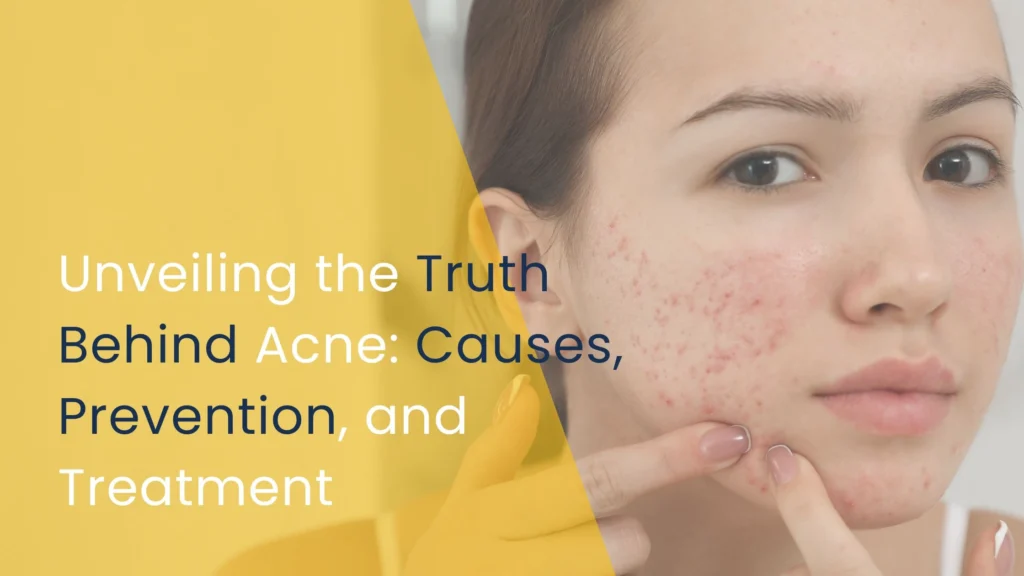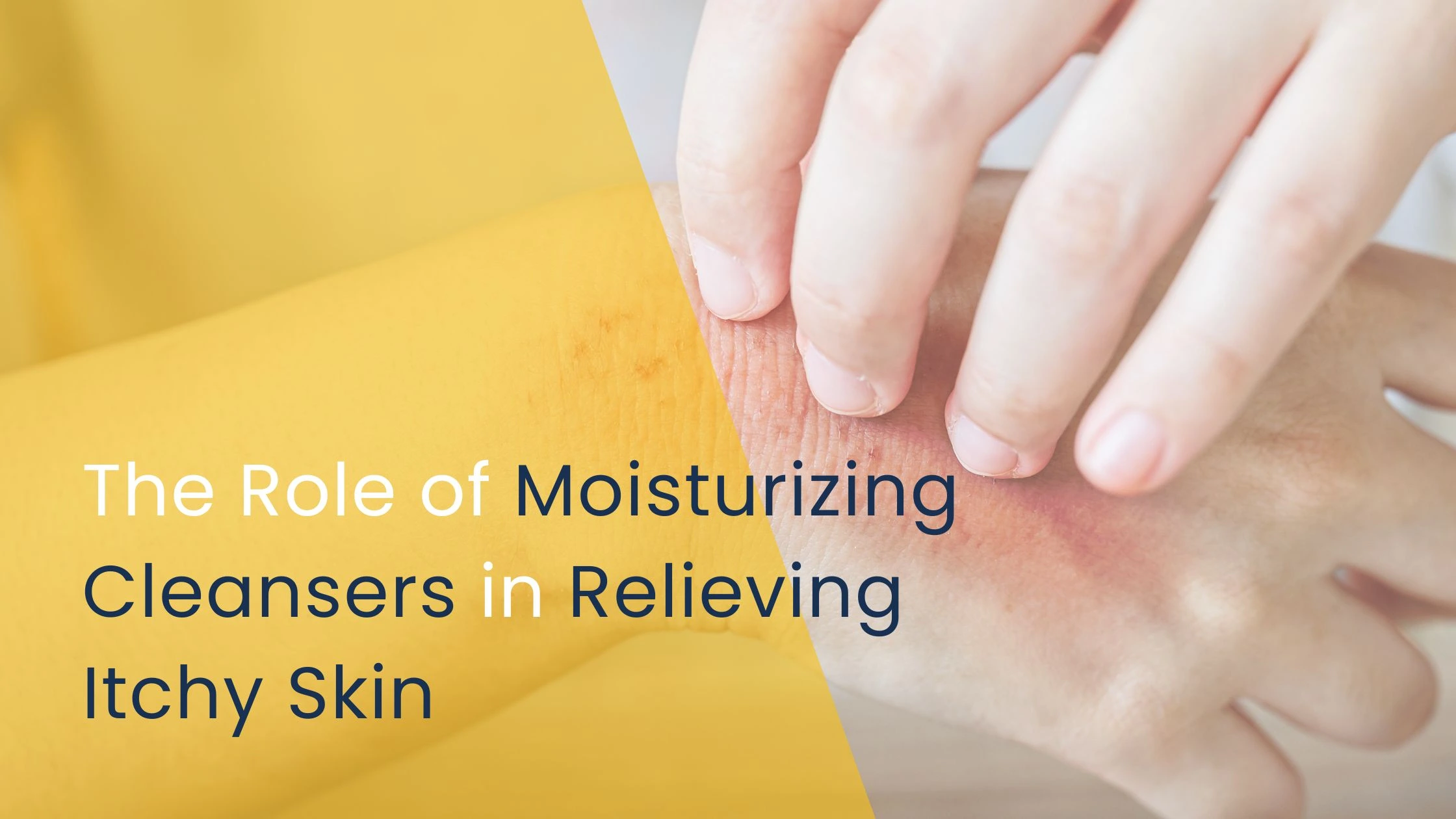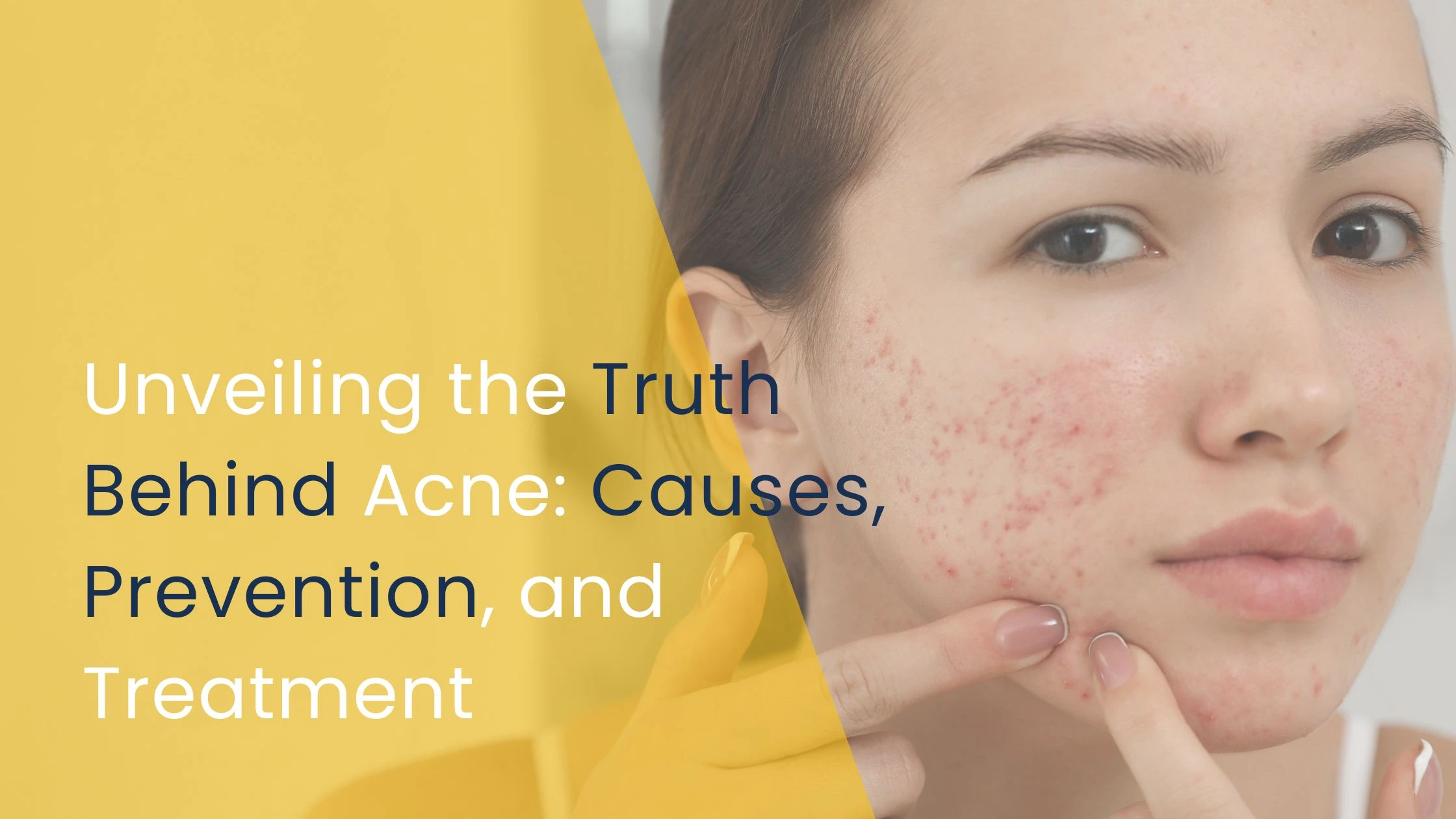Acne is a prevalent skin condition that affects millions of people worldwide. It doesn’t discriminate, attacking people of all ages and backgrounds. While often associated with adolescence, acne can also last or even make its first appearance in adulthood. Thus, this blog brings an affirmative perspective on acne, outlining the reasons for its development, prevention, and ways to treat acne problems.
Understanding Acne
What is Acne?
Acne is a skin condition in which pimples, blackheads, whiteheads, and cysts are formed—the formation of acne results from the clogging up of oil and dead skin in hair follicles. Although acne is most common in teenagers because of hormonal changes, it can continue to prevail at any age.
Types of Acne
- Blackheads: Blackheads are open comedones characterised by small black spots on the skin.
- Whiteheads: Closed comedones that appear as small white or flesh-coloured plugs.
- Pimples: Inflamed lesions with potential pus.
- Cysts: Deep, painful lumps filled with pus.
Causes of Acne
Major Causes of Acne
Hormonal Changes
One of the primary causes of acne is hormonal changes. During the pubertal period, increased levels of androgens increase the size of the sebaceous glands and sebum production. Hormonal changes—during the menstrual cycle, while pregnant, and due to stress—can, of course, likewise bring on outbreaks of acne.
Diet and Nutrition
Diet is a significant consideration when thinking about skin health. High-GI foods—such as snacks containing sugar—and refined carbohydrates can elevate blood sugar and affect the supposedly increased production of sebum. A few studies have additionally linked acne to dairy products.
Lifestyle Factors
Poor sleep, high stress, and non-maintenance of skincare routines can all be added causes of acne. Stress increases the production of cortisol, which can result in more oil production and inflammation. Lack of sleep can affect the repairing system of the body, worsening your skin condition.
Genetic Factors
A person is more likely to get acne if their parents had acne. Genetic factors can affect the size and activity of the sebaceous glands, predisposing one to the condition by developing clogged pores and acne.
External Factors
Environmental factors, inclusive of pollution and humidity, as well as the use of some cosmetics, may lead to pore blockage and skin irritation, which consequently results in acne. In this respect, the selection of non-comedogenic preparations and the maintenance of a clean environment are central to limiting the impact of these factors.
Acne Prevention
How to Prevent Acne
Skincare Routine
Proper skincare must be maintained to prevent acne. Cleanse your face two times a day using a mild cleanser, exfoliate regularly to remove dead skin, and keep it hydrated using noncomedogenic moisturizers. Avoid harsh scrubs and over-washing, as it may irritate and possibly worsen the acne condition.
Healthy Diet
Fruits, vegetables, whole grains, and lean proteins may positively influence clear skin. Rich antioxidants, which include the intake of berries and leafy greens, help in keeping inflammation in check. One should also hydrate by drinking much water for healthy skin.
Lifestyle Modifications
Good stress management is done through techniques like yoga, meditation, and regular exercise, which can significantly reduce the occurrence of acne flare-ups. Ensure you get plenty of sleep each night, as getting the proper rest is essential for skin repair and overall health.
Avoiding Acne Triggers
Recognize and avoid your acne triggers. This can be specific foods, stressors, or the environment one lives in. A diary of skin responses to differing variables can help recognize and avoid potential triggers.
Acne Treatment: Effective Acne Treatments
Over-the-Counter Solutions
OTC treatments, including those containing benzoyl peroxide, salicylic acid, and alpha hydroxy acids, are useful in controlling mild to moderate acne. They open the clogged-up pores, thus reducing swelling and cutting down bacteria.
Prescription Medications
More serious acne cases often require prescription medication. Topical retinoids, antibiotics, and oral contraceptives are some of the medications prescribed to control oil production, inflammation, and bacterial infections.
Natural Remedies
Other common natural remedies are tea tree oil, aloe vera, and green tea extract. All these also have antimicrobial properties. While these are effective in some, they must be used with caution and only if a dermatologist is consulted first before being added to a therapeutic regimen.
Professional Treatments
Dermatological procedures may present significant improvements in acne and acne scars and may include chemical peels, laser therapy, or microdermabrasion. Treatment with professional medications is advised for chronic or severe cases and should always be conducted by a registered dermatologist.
Common Myths Associated with Acne
Myth: Acne is a Teenager’s Problem
Acne is not confined to teenagers only. Many people reach their 30s, 40s, and even more years of age while still having their acne. At any age, one can suffer from acne due to the trauma of hormonal and other life events.
Myth: Acne is Caused by Poor Hygiene
While good hygiene is an essential part of healthy skin, acne isn’t a result of dirt. Overwashing or harsh cleansers can irritate the skin and make acne worse. It’s about balance in your skincare routine.
Myth: Sun Exposure Clears Acne
While sun exposure may dry out existing pimples for the short term, it damages the skin in the long run and makes you break out more. Over time, too much sun can give birth to early aging and an increased risk of skin cancer.
Conclusion
In conclusion, it can be said that the etiology of acne, its preventive role, and the treatment path can make the management of this prevalent disease easier. But it can also mean a lot; one should be optimistic and proactive with their skincare regimen. Everybody’s skin is different, so what works for you may not work for somebody else. Stay positive and talk to a dermatologist for the best approach for your skin.



